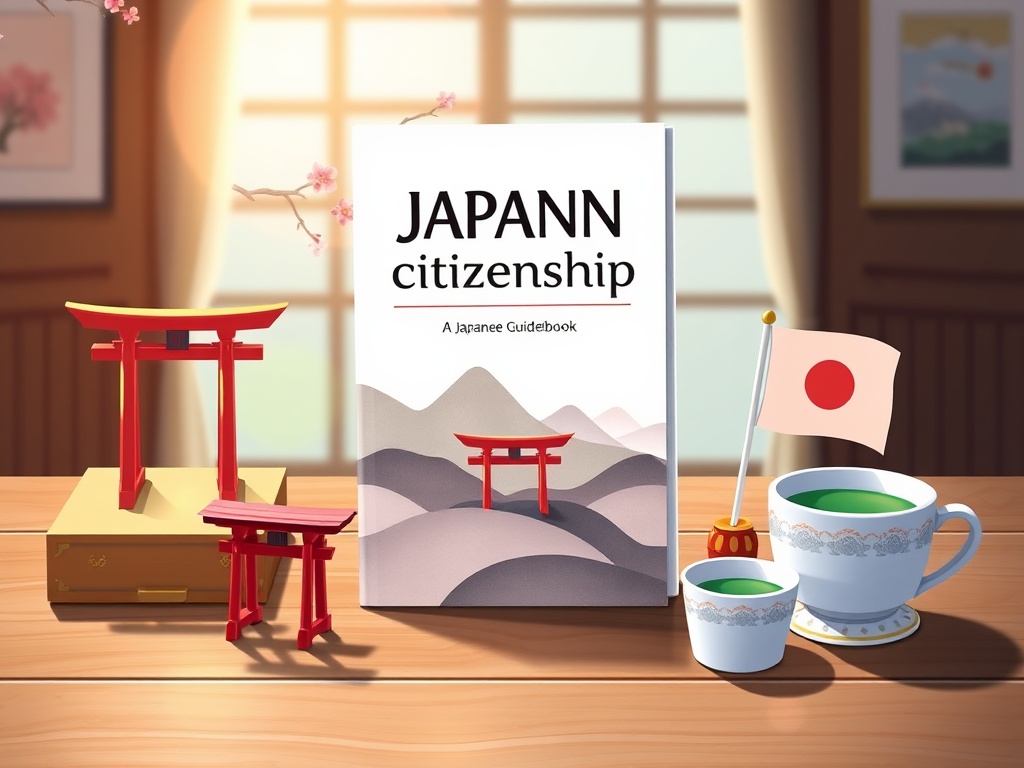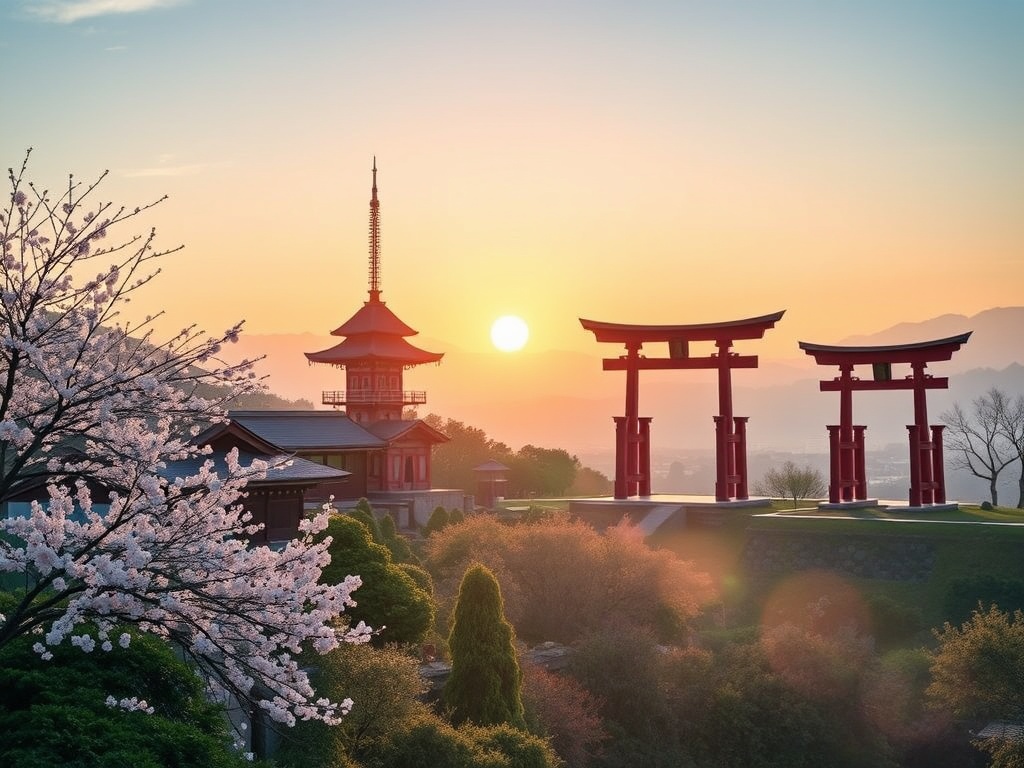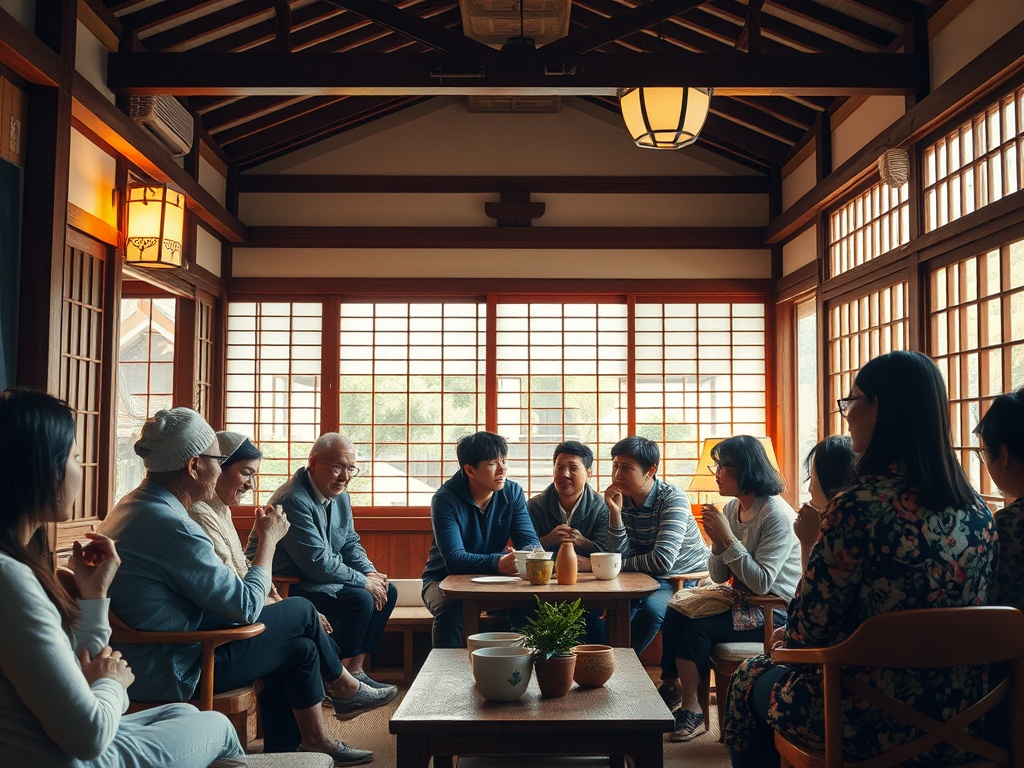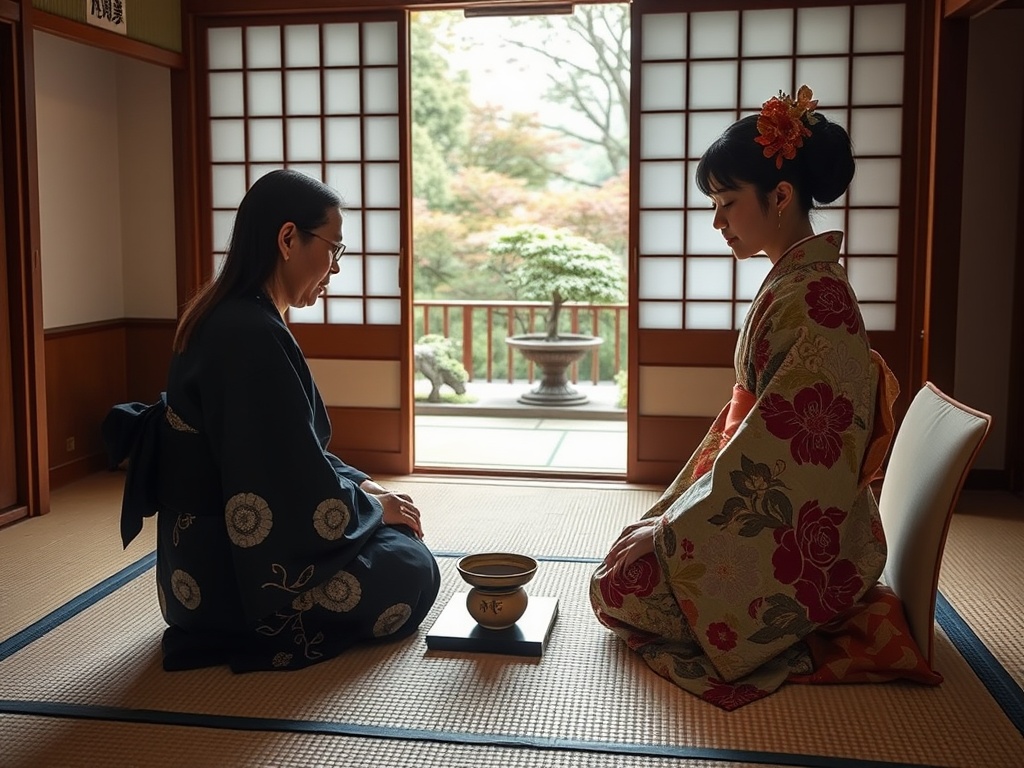Unlocking the Land of the Rising Sun: How to Become a Japanese Citizen
Win a Free Trip to Japan!
Experience cherry blossoms and ancient temples
Japan, a land steeped in tradition yet soaring with innovation, offers a unique cultural tapestry that is irresistible to many. For those who want more than just a fleeting visit, understanding the process of becoming a Japanese citizen can open doors to a world where ancient temples and ultra-modern skyscrapers coexist. This guide demystifies the path to Japanese citizenship for travel and tourism enthusiasts, providing insights into the legal journey and cultural landscape.
Acquiring Japanese citizenship is a process laden with legal intricacies and cultural nuances. It’s essential to be prepared for the journey ahead, armed with knowledge and patience. The legal process involves several key steps that must be carefully followed to achieve your goal of calling Japan your permanent home.
- Eligibility: To apply for Japanese citizenship, you must have lived in Japan for at least five consecutive years. This residency period is a testament to your commitment and integration into Japanese society.
- Language Proficiency: Proficiency in the Japanese language is a vital requirement. Mastery of the language not only helps in the application process but also in daily life as a future citizen.
- Renouncing Previous Citizenship: Japan does not allow dual citizenship. Therefore, you must be prepared to renounce your current citizenship to become a Japanese national.
- Character and Financial Stability: Demonstrating good character and a stable financial status is crucial. This involves providing detailed records and references to assure the Japanese government of your reliability and responsibility.
Becoming a Japanese citizen is not just a legal transition but a cultural immersion. As you step into this new chapter, embracing Japan’s rich heritage and societal norms is pivotal. From the art of tea ceremonies to the precision of ikebana, understanding and respecting cultural practices will enrich your experience and integration.
Japan is a country where respect, harmony, and community are valued highly. Engaging in local traditions and community activities will not only help you blend into society but also offer a deeper appreciation of why Japan is so cherished by its people and visitors alike.
As you embark on this transformative journey, here is a concise checklist to ensure you are prepared every step of the way:
- Ensure you meet all eligibility requirements and have maintained a continuous residence in Japan for at least five years.
- Enroll in Japanese language classes if necessary to meet the proficiency standards.
- Gather all necessary documentation, including proof of residence, financial records, and references.
- Prepare for the renunciation of your current citizenship and understand the implications involved.
- Engage with local communities and partake in cultural events to ease your transition into Japanese life.
From Tourist to Local: The Journey of Obtaining Japanese Citizenship
Transitioning from a tourist to a local in Japan is a captivating journey that entails much more than just a change in residency status. It’s about weaving yourself into the intricate fabric of Japanese society. This transformation demands not only legal compliance but also a heartfelt embrace of a new way of life. For travel and tourism enthusiasts, the allure of becoming a Japanese citizen often begins with the enchantment experienced during visits and culminates in the decision to make Japan a permanent home.
For many, the journey starts with the initial allure of Japan’s mesmerizing landscapes and vibrant cities. As a tourist, you might have marveled at the beauty of cherry blossoms in full bloom or the bustling energy of Tokyo’s Shibuya Crossing. However, the transition to a local involves a deeper exploration of Japan’s cultural ethos. Living in Japan means partaking in centuries-old traditions and understanding the unspoken rules that govern everyday interactions. Immersing yourself in these experiences will transform your perspective, giving you a more profound appreciation for the subtleties of Japanese culture.
One of the most significant aspects of becoming a local is the process of integration within the community. This involves more than just overcoming language barriers; it requires a genuine effort to understand and respect community values. Participating in local festivals, volunteering for community events, and building relationships with neighbors are essential steps in this integration process. By doing so, you not only demonstrate your commitment to becoming a part of the society but also enrich your own experience as you transition from a visitor to a valued member of the community.
Ultimately, the journey from tourist to local in Japan is both challenging and rewarding. It is a path that involves legal obligations, cultural adaptation, and personal growth. For those with an enduring love for Japan, this journey offers a unique opportunity to fully embody the spirit of this remarkable nation.
Cultural Immersion: Embracing Japanese Traditions as a New Citizen
Diving into the heart of Japanese culture is like stepping into a living tapestry where each thread tells a story of ancient wisdom and modern vibrancy. As a newly minted Japanese citizen, you will find that understanding and participating in the cultural traditions of this remarkable nation is not just an opportunity, but a privilege that enriches your new life. From the serene art of Zen meditation to the lively festivals that light up cities and towns, immersing yourself in these traditions is an essential part of your journey.
Living in Japan presents a daily opportunity to witness and partake in rituals that are steeped in history and significance. The Japanese tea ceremony, chanoyu, offers a glimpse into the art of hospitality and mindfulness. Engaging in this practice can deepen your understanding of wabi-sabi, the beauty of imperfection and transience, a concept deeply embedded in Japanese aesthetics.
Similarly, ikebana, the practice of flower arranging, is not just about creating visual beauty but also about capturing the essence of nature and the passage of time. Engaging in these practices can serve as a meditative escape from the bustling modern world, allowing you to find balance and harmony within yourself and your surroundings.
Festivals in Japan, or matsuri, are vibrant displays of community spirit and cultural heritage. As a new citizen, participating in these festivals is an excellent way to integrate into society and experience the joy and unity that these events bring. Whether it’s donning a yukata and joining the dance at a summer Bon Odori or savoring the delicate flavors of mochi during the New Year’s celebrations, each festival offers a unique perspective on Japanese life.
Here’s a list of must-experience Japanese festivals that every new citizen should look forward to:
- Cherry Blossom Festival (Hanami): A celebration of spring marked by picnics under blooming cherry trees.
- Gion Matsuri: Held in Kyoto, this festival is renowned for its elaborate floats and historical processions.
- Tanabata: Celebrated with colorful decorations and wishes written on strips of paper.
- Awa Odori: A lively dance festival famous in Tokushima, inviting everyone to join in the dance.
Understanding and respecting Japanese social etiquette is crucial as you embrace your new life. Bowing, a simple yet profound gesture, is an integral part of daily interactions. It signifies respect and gratitude, and mastering it will go a long way in helping you blend into Japanese society.
Additionally, punctuality is highly valued. Arriving on time, whether for a casual meeting or a formal event, reflects your respect for others’ time and is a testament to your integration into the cultural fabric. By adhering to these social norms, you honor the traditions that make Japan a uniquely respectful and harmonious society.
Legal Labyrinth: Navigating the Path to Japanese Naturalization
Embarking on the journey to Japanese citizenship is akin to unraveling an intricate tapestry of legal and cultural threads. For travel and tourism enthusiasts enchanted by Japan’s unique blend of the ancient and the ultramodern, understanding the legal labyrinth of naturalization is a crucial step. While the allure of cherry blossoms and bustling cityscapes might draw you in, the path to becoming a Japanese citizen requires careful navigation through a series of legal milestones.
Each step towards Japanese naturalization is marked by distinct legal requirements that demand attention to detail and a commitment to understanding the nuances of Japanese law. From residency stipulations to language proficiency, these milestones define your journey from a visitor to a valued citizen.
- Residency Requirement: A minimum of five years of continuous residence establishes your dedication and integration into Japanese society. This period is not just a formality but a testament to your commitment.
- Language Proficiency: Mastering the Japanese language is more than a practical necessity; it is a bridge to understanding culture and fostering meaningful connections.
- Character Assessment: Demonstrating moral integrity and financial stability assures the Japanese government of your ability to contribute positively to society.
Gathering the necessary documents is an essential, albeit daunting, aspect of the naturalization process. Ensuring accuracy and completeness in your paperwork can streamline your journey through the legal maze.
Here’s a checklist to guide you through the documentation process:
- Proof of Residence: Documents that verify your five-year residency, including housing and employment records.
- Financial Statements: Evidence of financial stability is crucial, showcasing your ability to support yourself in Japan.
- Character References: Letters from Japanese citizens or officials attesting to your moral character and societal contributions.
Understanding and accepting the legal expectations of Japanese citizenship is vital. This acceptance is not merely about compliance but a genuine alignment with the values and principles that underscore Japanese society. By embracing these expectations, you lay the groundwork for a fulfilling life as a Japanese citizen, rich with cultural immersion and community participation.
Living the Dream: What Japanese Citizenship Means for a Traveler
For travel and tourism enthusiasts, obtaining Japanese citizenship is not merely about acquiring a new passport; it is a gateway to a lifetime of unparalleled experiences. Imagine waking up to the serene landscape of Mount Fuji at dawn or enjoying the vibrant nightlife of Osaka without the constraints of a tourist visa. As a Japanese citizen, you gain unrestricted access to the nation’s cultural wealth, from hidden temples to lively local markets, offering a rich tapestry of adventures to explore at your leisure.
Becoming a Japanese citizen opens up a world of continuous exploration. With the freedom to travel across the archipelago, you can delve into the diverse landscapes of Japan, from the snowy mountains of Hokkaido to the tropical beaches of Okinawa. This new status allows you to savor the authentic beauty of Japan without the rush of an itinerary. Whether it’s taking a spontaneous trip to a quaint ryokan or fully immersing yourself in a local matsuri, the opportunities are endless. As a traveler, being a citizen means you can witness the changing seasons in their full glory, each bringing its own unique charm and festivities.
Japanese citizenship for travelers is more than just a legal status; it’s about becoming a part of Japan’s narrative. It allows you to weave your own story into the vibrant tapestry of Japanese life. With citizenship, you can participate in community activities, contribute to local initiatives, and build lasting relationships with people who share your love for this nation. This integration transforms you from an observer to a participant, where you can enjoy the subtle nuances of everyday life in Japan. By embracing this new role, you not only enrich your own life but also contribute to the cultural diversity that makes Japan so captivating.
Beyond the Visa: The Benefits of Holding Japanese Citizenship
For travel and tourism enthusiasts captivated by the allure of Japan, acquiring Japanese citizenship represents a significant milestone. This transition from a temporary visitor to a permanent resident offers a multitude of benefits that extend far beyond the limitations of a tourist visa. By embracing Japanese citizenship, you unlock a realm of opportunities that allow you to experience Japan in a profoundly enriched manner, immersing yourself in its culture, society, and natural beauty without restrictions.
One of the most compelling advantages of holding Japanese citizenship is the freedom it provides. No longer bound by visa limitations, you can explore the entirety of Japan at your own pace, from the unspoiled landscapes of Okinawa to the bustling streets of Tokyo. This unrestricted access means you can indulge in spontaneous weekend getaways, delve into lesser-known regions, and savor seasonal festivals without the constant concern of visa renewals or travel restrictions. As a citizen, Japan becomes your playground, available to you at any time, in any season, allowing you to truly live and breathe the essence of this remarkable nation.
Japanese citizenship also brings with it a sense of belonging and community integration that is often elusive as a foreign visitor. As a citizen, you are not just a spectator of Japanese life but a participant in its unfolding narrative. You gain full access to the country’s social systems, including healthcare and education, ensuring a secure and stable life. Moreover, citizenship allows you to vote and engage in civic duties, offering a say in the future of your adopted home. This active participation fosters deeper connections with locals and enables you to contribute to the cultural and social fabric of Japan, transforming your presence from that of a guest to a valued member of society.



